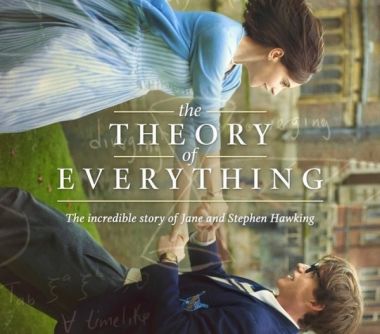The Theory of Everything: Review

This film contains at least two love stories – one between a man and a woman, the other between a man and science.
Anyone familiar with the basic biographical details of Stephen and Jane Hawking will know that theirs is a love story without a happy ending – they separated in 1990 and divorced five years later.
Hawking's relationship with physics is, of course, a happier tale, and one that has positioned him among the towering intellects of our day. He's a Cambridge professor, 'A Brief History of Time' has sold more than 25 million copies worldwide and he was awarded the CBE in 1982. All despite the fact that he was given just two years to live in 1963 after being diagnosed with motor neurone disease (MND).
The film, based on Jane Hawking's book 'Travelling to Infinity: My Life with Stephen' (Alma Books, 2008), charts their relationship from their first meeting when Hawking was embarking on his PhD and Jane an undergraduate.
Directed by James Marsh, the biopic weaves together Hawking's scientific exploration with his declining health and complex family life to compelling effect. It's a film that celebrates human achievement: Stephen's great mind, Jane's self-sacrifice and the determination they both display to overcome the disease that affects every part of their lives.
Eddie Redmayne gives a masterful performance as Stephen, and he is well matched by Felicity Jones' subtle portrayal of Jane.
As the film progresses, and Hawking's disease takes hold of his body, Redmayne's options for emotional expression become concentrated upon an increasingly limited number of facial muscles – a slight smile or raised eyebrow. But despite these restrictions, there is no shortage of emotional intensity, which is reinforced by some beautiful cinematographic moments.
From their first meeting in the film, Jane's Christian faith is set up in opposition to Stephen's quest to find a single, beautiful equation "to believe in". While Jane is content to believe in God and study poetry, Hawking is on a voyage of discovery to find an explanation for the origins of the universe, a theory of everything.
Though initially intriguing, this religious difference allegedly contributed to their relationship breakdown, and to disharmony between Jane and Hawking's atheist family.
Despite their theological differences, and the gestures towards Jane's and Stephen's extra-marital relationships, the moment in the film that depicts their parting feels as though it comes out of the blue – a narrative jolt, which, though movingly portrayed, lacks context.
Additionally, there are points when the narrative seems particularly skewed to Jane's perspective, including the portrayal of Elaine Mason, Hawking's nurse and second wife, as somewhat predatory.
The final scenes give the impression that the filmmakers were trying hard to create a more Hollywood-compatible love story than real life provides. Nonetheless, it is a testament to the quality of the film that Hawking allowed them to use his electronic voice. Having seen the film, accompanied by Jane, he reportedly said: "At times I thought Eddie was me."
It's a film of substance and of style, which repeatedly raises questions about success – what it means to be successful in work, life and love when the odds are stacked entirely against – and about the meaning of life itself.
The Theory of Everything is released in the UK on New Year's Day. Damaris has free resources available should you wish to explore the questions raised by the film with your church or community.











